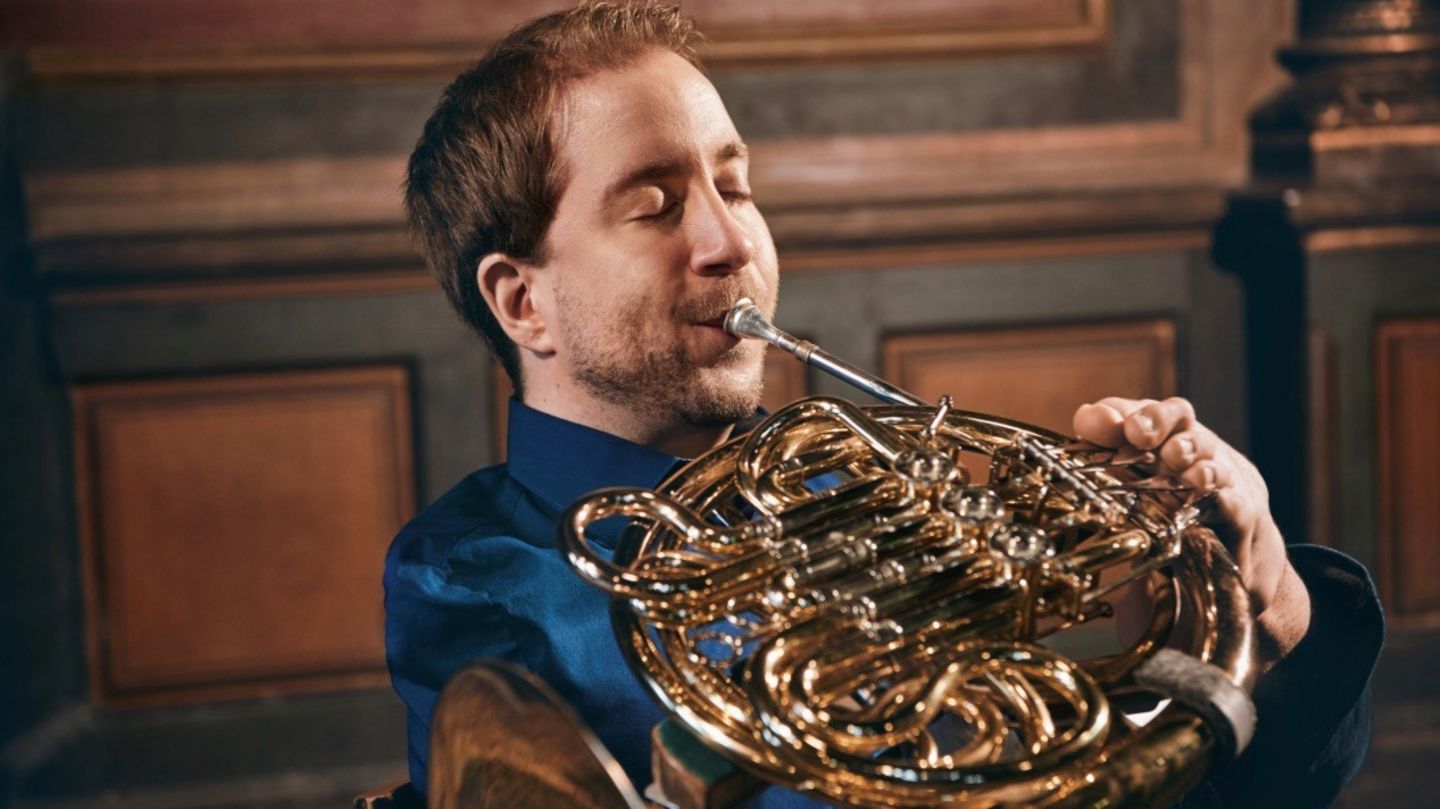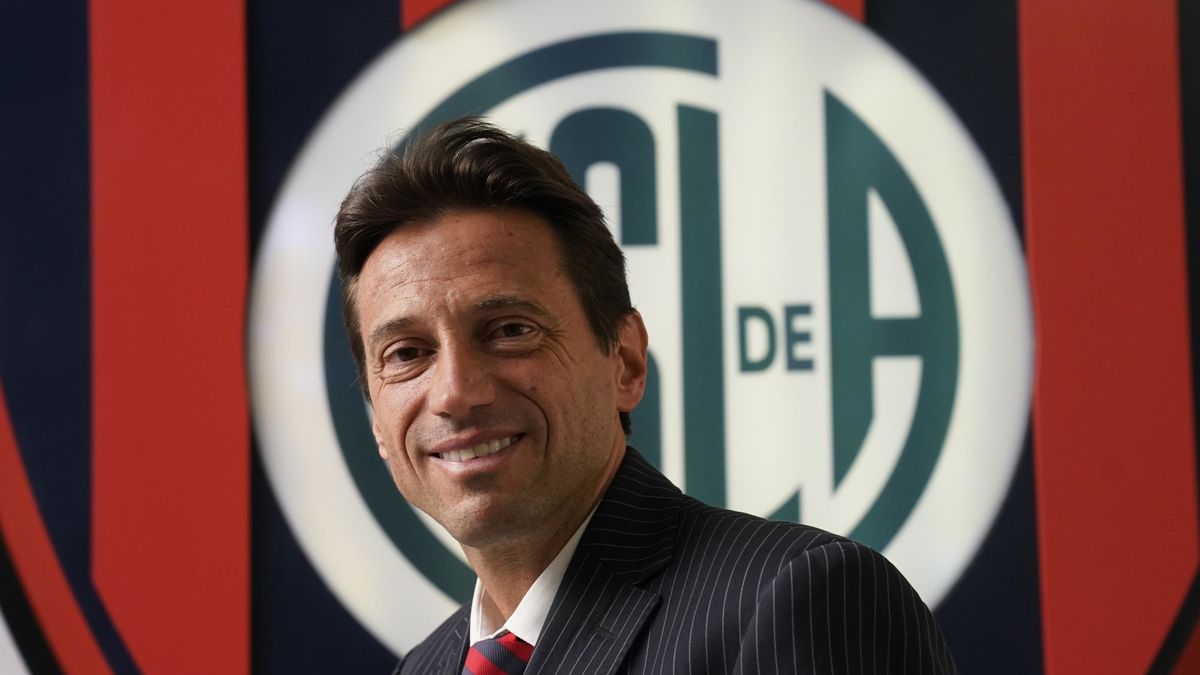Felix Klieser is an integral part of the world of classical music, but things could have turned out differently. star he explained why it’s only over when you stop.
You write in your book that two coincidences shaped your life: being born without arms and the desire to play the horn. But that sounds more like fate.
In a way, yes. Just the story with the horn. I’m always asked why I wanted to play this unusual instrument. And I always answer the same thing: I don’t know. No one in my family had anything to do with music or played an instrument. It’s really a complete mystery how I got into it as a child. And when I went to my parents and said that I wanted to play the horn, they honestly didn’t really know what I meant.
Speaking of your parents, how did you respond to the four-year-old’s wish Felix reacted to wanting to become a professional horn player?
Lots of children play football, go to ballet or make music. It’s just a hobby. And that’s how it started for me too. And it was good for my parents that I had fun, and if I had stopped playing the horn at some point, that would have been okay too.
To person
Felix Klieser was born in Göttingen in 1991. He had no arms, but he wanted to become the greatest horn player in the world. At first nobody took him seriously. But he became a horn player. He travels all over the world as a soloist. He has won the Echo Klassik, among other awards. Klieser believes that we can decide a lot of things ourselves in life. In his book he tells how everyone can hold on to their dreams.
Now, music lessons usually involve the guitar teacher showing how to play a chord and the student imitating it. How did the horn lessons work for you?
For me it was reality and my biggest challenge as a child that I had to adapt everything for myself, so to speak. Finding a solution for things that other people do with their arms. That meant that I always had to think about how I could implement this for myself so that it would work. For me as a child it was the most normal thing in the world that I had to figure out how to do everything I wanted to do. I didn’t find that bad or unpleasant, it was just my own reality. As a child I also learned that no matter what difficulty arises, I can find a solution if I deal with the problem and try out different things.
So you’ve tried a lot of things. But you’re also self-taught.
Yes, I am definitely self-taught. I was shown how it basically works and then had to adapt it for myself. But sometimes it wasn’t so easy: if you want to play the horn professionally, you have to be able to adjust the tone of the instrument. Normally, this is done by the right hand on the bell of the instrument. And of course I couldn’t do that. It was the first moment in my life when I didn’t understand how it basically works. I really had to start from scratch – think about how I could possibly imitate this tone with my lips and air flow.
You finally solved it and are now a professional musician. Where did your career choice come from?
That’s always difficult to say. When I was nine years old, my horn teacher gave me a CD of a recording of a horn player playing a solo in an orchestra. That was the first time I heard what a horn can sound like and how it works with the orchestra. And I was totally impressed. From that moment on, my biggest dream was to play as a soloist with an orchestra once in my life. So I held on to the dream and practiced a lot to become a very good horn player.
And how would you say music has influenced your life?
My life is actually quite simple. That means I always have a passion for something and I chase after that passion. And most of the time I have no idea what to do with it. I also have no idea where it will lead. And music has always been my passion. I wanted to be able to play the great pieces – to perform as a horn player. And I really worked hard for that. I tried to put all my energy, resources and time into this instrument. Today I feel it is a great privilege that I can only do things that give me joy and that music is my profession.
What hurdles did you face on your way to becoming a professional musician?
There have been countless points in my life where I thought: I think this is really the limit. I just can’t get any further. No matter what I do, I won’t overcome this hurdle. And what got me over this hurdle was that I didn’t stop. So as soon as you say: OK, I’ve reached a limit and I’m deciding to stop, it’s really over. I’ve always decided to keep going. And so an opportunity always arose.
Nevertheless, it was not a given that you would reach your destination today.
No, it could have turned out differently for me. We like to see people for their supposed weaknesses. Some weaknesses are immediately obvious, you can just see them, and this weakness is taken and then generalized: the person has no arms, so they can’t be intelligent. So they aren’t able to follow school material, for example. Of course, one has nothing to do with the other, and anyone who has studied the human body knows that the number of limbs has nothing to do with intelligence. Nevertheless, as a society we see people that way and categorize them, and that’s how they end up on the sidelines. That could have happened to me too.
Fortunately, your path was different. And you tell your story because you want to encourage other people to hold on to their dreams.
I have spent a long time and intensively considering the question of how much we can influence our own lives. And my experience is that we have a very large influence on our lives, even if many people don’t realize it. We attribute the success of many people to their talent or natural abilities. But that’s nonsense. We can learn a lot of things, we have to work hard for them, we make mistakes and experience setbacks. And in the end we learn from mistakes. I always think mistakes are positive.
But this view is rare.
Not wanting to make mistakes is a very common mindset. After all, if you make mistakes, you’ll get in trouble at school or at work. But we can learn a lot from mistakes.
So our thinking blocks us…
Yes. Other perspectives also block us in society. For example, thinking: “If Johnny doesn’t learn it, Hans will never learn it!” That is complete nonsense. It suggests that I, as an adult, cannot learn new things. Maybe it is easier to learn a language as a child. But it is still possible as an adult. So my message is: if you want to learn the piano as a pensioner, for example, you should make this dream come true and not be afraid of it.
Mental health
Mental hygiene: These ten habits are balm for the soul
Not everyone has such a clear desire. How do I find my passion?
If you think back to your own childhood, you will remember what fascinated you then. These passions are often buried in the everyday life of adult life. But it is worth taking a look and finding out what we can be passionate about.
Source: Stern
I’m Caroline, a journalist and author for 24 Hours Worlds. I specialize in health-related news and stories, bringing real-world impact to readers across the globe. With my experience in journalism and writing in both print and online formats, I strive to provide reliable information that resonates with audiences from all walks of life.




